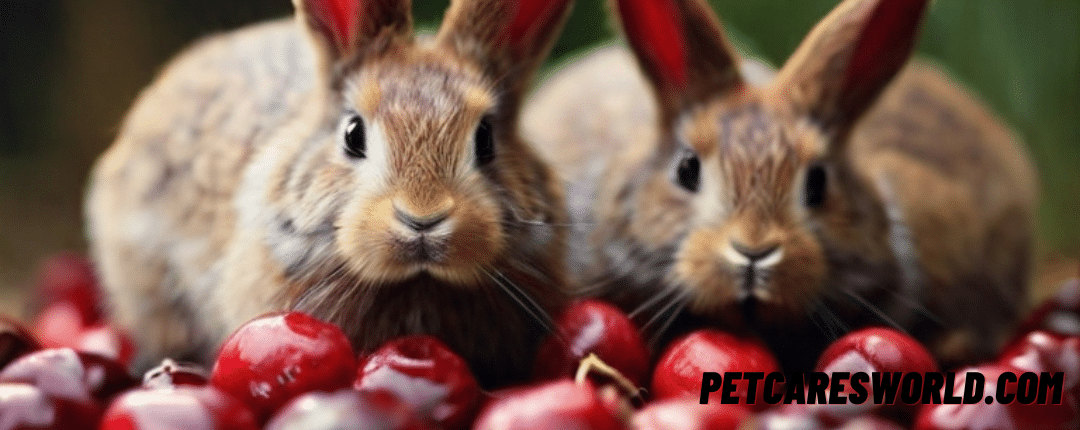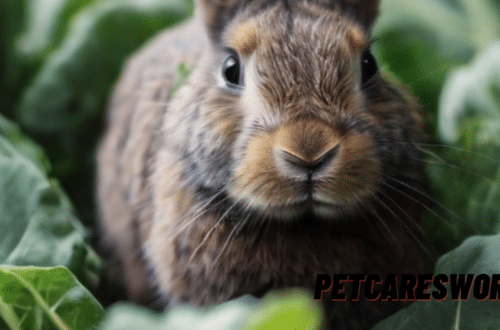Rabbits are adorable creatures known for their voracious appetites and love for munching on various types of foods. As a responsible pet owner or someone curious about rabbit care, you might have wondered, “Can rabbits eat cherries?” It’s a valid question considering cherries are a common fruit enjoyed by many. In this comprehensive guide, we’ll delve into the topic to understand whether cherries are safe for rabbits to consume, potential risks involved, and tips for maintaining your bunny’s health and happiness.
Understanding the Rabbit Diet: What Can They Eat?

Rabbits have delicate digestive systems that require a specific balance of nutrients to stay healthy. Their diet primarily consists of high-fiber foods such as hay, fresh vegetables, and limited amounts of fruits. While rabbits can enjoy a variety of fruits as occasional treats, not all fruits are safe for them to eat.
Exploring the Safety of Cherries for Rabbits
Cherries, with their sweet and juicy flavor, may seem like a tempting treat for rabbits. However, it’s essential to approach this fruit with caution due to certain factors that could pose risks to your bunny’s health.
Cherries contain natural sugars and acids that may not sit well with a rabbit’s digestive system. The pits and stems of cherries also present choking hazards and contain compounds that are toxic to rabbits. As responsible pet owners, it’s crucial to prioritize your rabbit’s well-being by understanding the potential risks associated with feeding them cherries.
Risks Associated with Feeding Cherries to Rabbits
Feeding cherries to your rabbit can lead to various health issues, including gastrointestinal upset, diarrhea, and potentially life-threatening conditions. The pits of cherries contain cyanide, a poisonous compound that can be harmful if ingested by rabbits.
Cyanide interferes with the body’s ability to utilize oxygen, leading to symptoms such as difficulty breathing, weakness, and in severe cases, respiratory failure. Additionally, the high sugar content in cherries can disrupt a rabbit’s delicate gut flora, leading to digestive disturbances and obesity over time.
Alternatives to Cherries for Rabbit Treats
While cherries may not be suitable for rabbits, there are plenty of safe and healthy alternatives you can offer as treats. Fresh fruits such as apples (without seeds), strawberries, and bananas are excellent choices that provide essential vitamins and minerals without the risks associated with cherries.
It’s essential to introduce new foods to your rabbit’s diet gradually and in moderation to prevent digestive upset. Always wash fruits and vegetables thoroughly to remove any pesticides or harmful residues before offering them to your bunny.
Maintaining Your Rabbit’s Health and Happiness
As a responsible pet owner, ensuring your rabbit’s health and happiness is paramount. Along with providing a balanced diet, ample fresh water, and a clean living environment, regular veterinary check-ups are essential for monitoring your rabbit’s overall well-being.
Signs of a Healthy Rabbit
A healthy rabbit exhibits bright eyes, a shiny coat, and maintains a consistent appetite and activity level. Regular grooming helps prevent fur mattedness and reduces the risk of hairballs, a common issue among rabbits.
Recognizing Signs of Illness
It’s crucial to familiarize yourself with the signs of illness in rabbits, which can include lethargy, changes in eating or bathroom habits, and abnormal discharges from the eyes, nose, or ears. If you notice any concerning symptoms, seek veterinary care promptly to prevent the condition from worsening.
Providing Enrichment and Mental Stimulation
Rabbits are intelligent and social animals that thrive on interaction and mental stimulation. Provide plenty of toys, tunnels, and safe chewing materials to keep your rabbit entertained and engaged. Spending quality time with your bunny through gentle handling and supervised play sessions strengthens the bond between you and promotes their overall well-being.
Conclusion
While cherries may seem like a delicious treat, they are not suitable for rabbits due to potential health risks associated with their consumption. As responsible pet owners, we must prioritize the health and safety of our furry companions by providing them with a balanced diet and enriching environment.
By understanding the specific dietary needs of rabbits and being mindful of the foods we offer them, we can ensure they lead happy, healthy lives for years to come.






